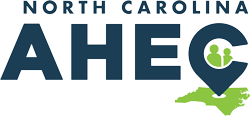
Location
Dates & Times
Contact
Do you have event related questions or need help with registration?
In the weeks immediately after the pandemic spread to the United States, disadvantaged communities were faced with reduced access to care, a widening digital divide, and inadequate supplies, such as food and diapers. Investing in Community Health Workers (CHWs) and community-based organizations can help address the social determinants of poor health that disproportionately affect low-income, minority populations which are magnified during times of crisis. These workers and organizations can help improve material conditions, facilitate access to healthcare systems, and provide psychosocial support. The level of CHWs engagement with COVID-19 activities, as well as the types of activities (e.g. general community education or direct engagement with persons diagnosed with COVID-19), will depend on many factors—including available resources and skills. The goal of this series is to bring Community Health Workers across North Carolina together to make connections and learn from each other.
This video teleconferencing series, guided by experts in WNC, will take place in 1-hour modules every third Thursday of the month through 2022, with possible extension after that.
All program dates are streamed on the Zoom Platform.
Each module is a new topic.
Modules are every third Thursday of the month from 12 pm to 1 pm EST.
Optional Informal Communication Collective: 11:30 am–12:00 pm
Educational Program: 12:00 pm–1:00 pm
Same for every module; you must login at 11:50 am for credit.
One credit hour is earned for each module attended.
Topics will include:
• Field Safety
• CHW Self-Care
• Health Behavior Change
• Trauma Informed Care 101
• Future Topics to be announced
Simultaneous interpretation for each session will be provided in Spanish.
In Collaboration with

This project is funded by North Carolina Area Health Education Centers Program Office (NC AHEC), a partner supporting the NC CHW Initiative (NC CHWI) at the state level in collaboration with the NC Office of Rural Health (NC ORH) and other stakeholders.
MAHEC engages in evaluation activities to better understand the impact of our programs. By registering for this course, you agree that we may use your personal information in evaluative research regarding this program. Any reports published will be de-identified and reported in aggregate form.
MAHEC assumes permission to use audio, video and still images from this program for promotional and educational purposes. Please speak with a staff member if you have any concerns.